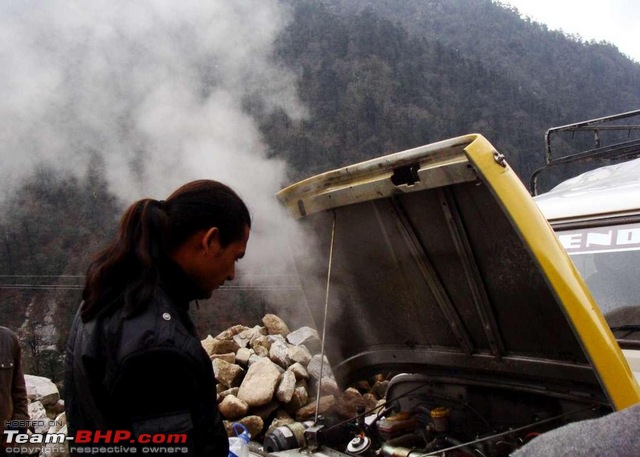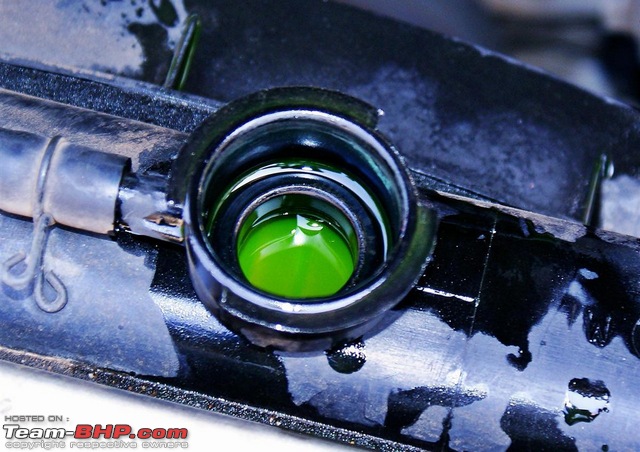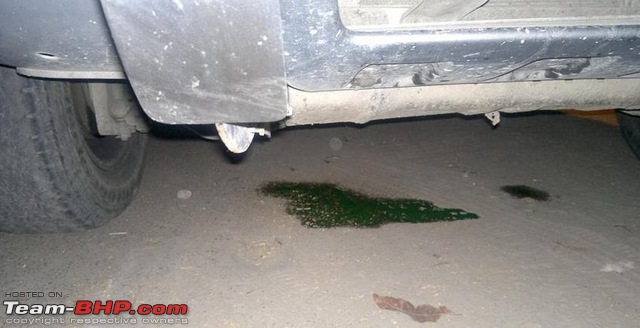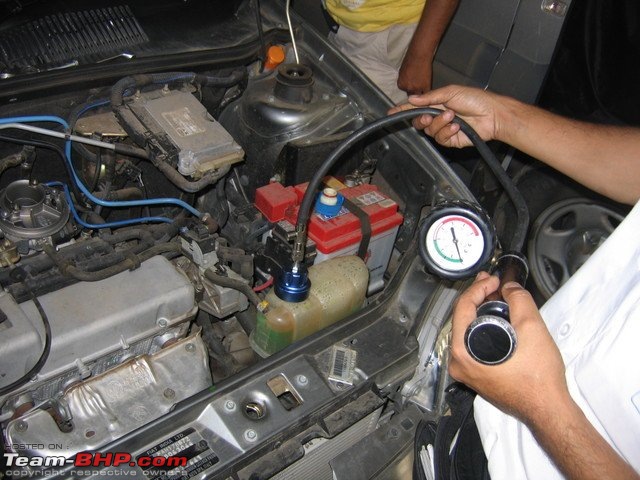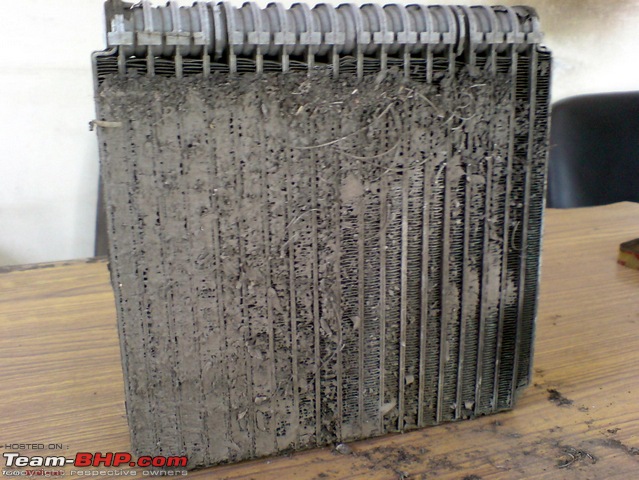First things first:
The first thing you should do is switch the air-conditioner off, keep the revvs to a minimum and find a safe parking spot. Once you come to a halt, switch the engine off immediately, but position the key in “ignition on” mode. This will allow the fans to keep running. Contemporary cars have electric cooling fans that operate even when the engine is switched off. Pay attention to whether the fan kicks in or not (you will hear it) as this information will help us later.
Ensure nothing is blocking the front of the radiator (e.g. plastic bag or newspaper). Also open up the bonnet. Keeping the bonnet open will allow heat to escape quickly. However, if you see steam coming out from the bonnet area, don't go near it. Wait for the heat to subside or call for professional assistance.
There is no airflow aiding the cooling system at 0 kph and the components have to work harder to keep things cool when the car is standing still. The steps above help to minimise damage.
If the Radiator is Empty:
• Look at the coolant overflow tank (
usually a small plastic tank connected to the radiator). If fluid level is below the minimum mark, there is a good chance that your radiator is running low too. While you can top up this overflow tank when the engine is hot, in some cars (mostly European models), the tank is pressurised. If there is a warning around the lid, or the lid needs to be screwed off (not flipped open), you can be sure that it's pressurised. Don't open it in that case; wait for the engine to cool off.
• We need to ensure that the radiator is topped up with coolant and water. Remember, you should NOT open the radiator cap when the engine is hot. It's literally a pressure cooker in there and you could end up severely burnt. Therefore, wait around for a minimum of 45 minutes. Go get yourself a snack or try to find a mechanic close by. When the engine has cooled down,
slowly open the radiator cap with a thick napkin or cloth placed over it. It might release pressure and steam as you unscrew the cap, so do this very slowly.
• If the radiator is dry, you need to fill it up with coolant & water. If you cannot source coolant, use only water as a temporary fix. Be sure to start the engine before you start filling the radiator. This is necessary, else you'll end up with a cracked engine block. Keep the engine running and slowly top the radiator up with coolant and / or water.
A cooling fan gone bust?
• It’s unlikely that a modern car will ever end up with a bone dry radiator. If yours is, that hints toward a faulty fan or a leakage. Was the fan working when you initially came to a stop and parked the car in "ignition on" mode? To double check, once you have replenished the radiator, start the engine. After a couple of minutes of idling, the cooling fan should automatically activate upon your car reaching its operating temperature. If it doesn't, that's your problem right there. You could also try turning your air-conditioning on; many (but not all) cars will start the radiator cooling fan the minute that the air-con is switched on.
• Check the fan fuse. If it's blown, replace it right away.
• Even with a faulty cooling fan, your engine might be able to maintain its cool when cruising on the open road. However, the cooling system won't be able to handle traffic and thus, you should avoid bumper-to-bumper conditions at any & all costs. Fill your radiator and stick to open roads only. Maintain the highest gear & lowest rpm level possible. Switch the engine off whenever you come to a stop (e.g. at a traffic light). Keep a close eye on the temperature gauge; if it climbs to half or over, you should stop safely off the road and turn your car off.
The Heater Trick:
In either of the above mentioned situations, you can try switching your heater on to drain heat from the engine. Remember, your HVAC sources heat from the engine. The following steps might help in transferring heat away.
• Swing your air-conditioner temperature dial all the way to the red zone and the blower speed to full.
• Choose "fresh air" mode. Do NOT turn your air-con compressor on.
• Slide down all windows as the cabin will understandably become very hot.
• Move the air-vent's direction away from you, or direct air toward the windscreen.
• Switch the engine off whenever you come to a stop (e.g. at a traffic light).
• With some luck, the heater trick will keep your engine temperature within the safe zone.
The steps listed in this post might just get you to a repair garage without doing any permanent damage to your vehicle.

 (43)
Thanks
(43)
Thanks

 (80)
Thanks
(80)
Thanks

 (34)
Thanks
(34)
Thanks

 (53)
Thanks
(53)
Thanks

 (5)
Thanks
(5)
Thanks
 (3)
Thanks
(3)
Thanks

 (37)
Thanks
(37)
Thanks

 (15)
Thanks
(15)
Thanks
 (8)
Thanks
(8)
Thanks
 (4)
Thanks
(4)
Thanks
 (2)
Thanks
(2)
Thanks
 (2)
Thanks
(2)
Thanks
 (1)
Thanks
(1)
Thanks
 (2)
Thanks
(2)
Thanks
 (13)
Thanks
(13)
Thanks




